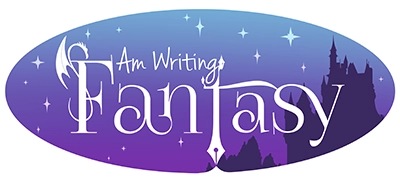Writer’s minds are amazing. We can keep the threads of stories, characters, and fragments of worlds swirling around in our minds for months, even years! And yet, when we sit down to write after finally finding the time, it can seem every one of those ideas disappears.
Ok, it isn’t always that bad, but it does seem like getting back into the actual writing of a story is much harder than thinking about the details. And that is because writing is, well, hard.
I read a great advice article that really outlined how amazing being able to craft an interesting much less cohesive story truly is. Writers have an hazy idea that they must solidify, find words to describe that others will use as building blocks to create the same setting, character, and world, and then we put it all in motion with plots and subplots that actually make sense while still surprising. This is pretty big picture stuff!
So yes, it is hard and enjoyable, exciting and frustrating. And, there are techniques that help keep the writing going as well as grow the idea and plot despite a busy life, careers, friends, hobbies, and just not much writing time.
What You'll Learn
Have a road map
Just like it is easier to drive somewhere if you know the destination and check out some possible routes to get there, writing is much easier you’ve scoped out where the story is going. It doesn’t have to be a forty-page outline, and it doesn’t have to take days to do. My favorite method can be wrapped up in half an hour.
I use the 7 Steps of Story Structure to create a rough outline of the big events, fill in some of the details that I hadn’t thought of, and get a general feel that this will actually create a story before I start writing. Plus, it has the added benefit of giving me the confidence the story I’m going to write will hit all the right notes to be an interesting story with building tension. So, I know I’m driving with confidence.
And sometimes, it is just that confidence that you are heading in the right direction and everything will work out that gets you, and your characters, through the dark mountain passes that feel like they will swallow you and your novel.
Get yourself in the mood to write
Everything is better if you get yourself psyched for it from exercise to public speaking. Why would writing be any different?
When you know you are going to have some writing time coming up, try to get your brain ready. Even if you don’t know exactly where you left off the last time you sat down with your WIP, start to think about the characters, the world, and where you are in the 7 Steps of Story Structure. Start opening those files in your brain so that you are already immersed, or at least wading, in your mansucript when you are ready to sit down.
Rituals help too!
Develop a set of steps that get you ready to tackle writing. While your laptop is turning on or files opening, review notes, make a cup of tea, play a song that reminds you of your world, read a page of writing you love. Get your mind clicking. I also highly recommend turning off social media, and if you really need incentive to focus on your writing there are a LOT of apps out there that will block off internet or social media access for specific amounts of time until you turn it back on, or until you hit your word count. So make turning on one of those part of your pre-writing routine and see if it helps get your mind humming in the right direction.
Save all the ideas that come your way
Creativity really is like a faucet. If you have a few drips that you capture, soon you’ll have a puddle, then a little flow, maybe even be able to develop it into a stream. But if you take those first few drips and try to crank them shut because “now” isn’t a good time to think about them and you let whatever bright notion you had trickle down the drain, you’ll find that writing flow and coming up with what happens next that much harder when you sit down to write.
Haven’t you ever noticed when story ideas are cranking you are also on problem-solving overdrive at home or work as well? You may try to separate your day into tasks, but your brain doesn’t see it that way. It wants to figure out your heroine rescues her best friend from the underground nest of hydras at the same time while noticing why one client might have misunderstood the last communication and needs a follow-up. Go figure.
So you need notes.
Notes that you can save without being worried that someone will mistake the sticky pile as trash or spill their coffee on it. Something organized enough that you will actually look at them again too. A note feature on your phone or laptop is great.
My personal favorite thing to do is to take those notes and add them into a chapter outline I’ve created for my story. Why? Because that puts the note at exactly the right place where I’ll need it and in the same manuscript as I’m writing, so I don’t have to go looking for it (or forget about it).
And it is a seriously easy process to set a chapter goal and have a general idea of what should be happening whereby using your average word count per chapter, a word count goal for your story based on your genre, and the 7 Steps of Story Structure. Don’t believe me? Well, I outline how to do it in the Ultimate Fantasy Writer’s Starter Kit, which is free. So sign-up and check it out!
End your writing session in a way that will prepare you to pick up again
The best way to continue writing is to leave off the previous time with some clues as to what you were thinking should happen next. And for those tips, check out the recent AmWritingFantasy YouTube video on how to wrap a writing session.
How do you keep your story alive and growing? I’d love to hear how in the comments!










0 Comments